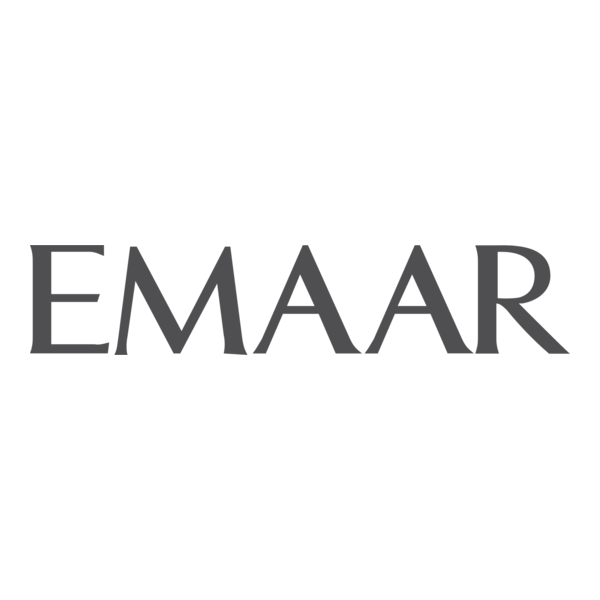Dubai Ingatlan Vásárlás 2025: Az Átruházási Eljárás Teljes Útmutatója

Mi az ingatlanátruházás (Conveyancing) és miért elengedhetetlen a Dubai ingatlan vásárlás során?
A Dubai ingatlan vásárlás során kulcsfontosságú a tulajdonjog átruházás (conveyancing) folyamatának megértése. Ez az eljárás, amely 2025-ben is alapvető fontosságú, biztosítja az ingatlan jogi tulajdonjogának zökkenőmentes átszállását az eladótól a vevőhöz. Különösen a Dubai ingatlan befektetés területén elengedhetetlen a precíz ingatlan átírás Dubai szabályai szerint.
Az ingatlanátruházás az ingatlan tulajdonjogának átruházására szolgáló jogi és adminisztratív eljárás. Ez a folyamat két fő szakaszból áll: a szerződések cseréjéből, amely véglegesíti az adásvételi megállapodást a vevő és az eladó között, és a teljesítésből, amikor az ingatlan jogilag a vevő nevére kerül.
Az összetett jogi követelmények és a jelentős pénzügyi összegek miatt e folyamat kezelése speciális szakértelmet igényel. Az ingatlanügyvéd semleges harmadik félként jár el, koordinálva a fejlesztőkkel, bankokkal és kormányzati szervekkel, mint például a Dubaji Földhivatallal (DLD), a zökkenőmentes és jogilag megfelelő tranzakció biztosítása érdekében. Szerepe az, hogy védje az Ön érdekeit, megelőzze a csalást, és kezelje az összetett papírmunkát, ezáltal stresszmentesebbé téve az egész Dubai ingatlanügyintézés-t.
Az ingatlanügyvéd főbb feladatai a tulajdonjog átruházás során
Az ingatlanügyvéd elsődleges feladata az ingatlan átírás Dubai-ban teljes felügyelete az elejétől a végéig. Ők biztosítják a jogi szakértelemet, amely szükséges a dubaji ingatlanpiac bonyolult labirintusában való eligazodáshoz, és professzionális Dubai ingatlanügyintézés-t végeznek.
Főbb feladatok:
- Jogi dokumentumok kezelése: Az összes jogi dokumentum, például az Egyetértési Nyilatkozat (MOU) vagy az Adásvételi Szerződés (SPA) előkészítése, felülvizsgálata és pontosítása.
- Átvilágítás (Due Diligence): Alapos ellenőrzések elvégzése az ingatlan tulajdoni lapjának hitelességének ellenőrzésére, az eladó eladási jogának megerősítésére, valamint annak biztosítására, hogy nincsenek fennálló tartozások, jogviták vagy fejlesztési korlátozások.
- Pénzügyi koordináció: Az összes alkalmazandó díj és adó kiszámítása, az előleg biztonságos letéti számlán való kezelése, valamint a bankokkal való koordináció jelzálog esetén.
- Kapcsolattartás a hatóságokkal: Kommunikáció a DLD-vel és a fejlesztőkkel a szükséges engedélyek, köztük az ingatlanátruházáshoz szükséges Nem Ellenvetési Tanúsítvány (NOC) megszerzése érdekében.
- Biztonságos átruházás: Minden fizetés biztonságos lebonyolítása, és annak biztosítása, hogy a tulajdonjog végső átruházása hatékonyan megtörténjen és helyesen bejegyzésre kerüljön a DLD-nél.
Melyek a dubaji ingatlanátruházási folyamat lépései 2025-ben?
Az ingatlanátruházási folyamat egy strukturált eseménysort követ annak biztosítására, hogy minden jogi és pénzügyi szempont fedezve legyen. Bár átlagosan 8-12 hetet vehet igénybe, egy szakértő ingatlanügyvéd és a rendezett dokumentumok felgyorsíthatják az idővonalat 2025-ben is.
1. szakasz: Megállapodás és átvilágítás (Due Diligence)
Miután a vevő és az eladó megegyezett a feltételekről, a folyamat megkezdődik. Az ingatlanügyvéd elkészíti az elsődleges adásvételi megállapodást (MOU vagy F szerződés), amely tartalmazza az árat, a fizetési feltételeket és az átruházás dátumát. Ezután átfogó jogi ellenőrzést végeznek, ellenőrzik az ingatlan tulajdoni lapját, biztosítják, hogy nincsenek fennálló terhek, és megerősítik, hogy az mentes minden jogi vitától.
2. szakasz: Az ügylet biztosítása
A vevő jellemzően előleget fizet, ami általában a vételár 10%-a, és amit az ingatlanügyvéd biztonságos letéti számlán tart. Ez mindkét felet védi. Az ingatlanügyvéd ezután elkészíti és benyújtja az összes szükséges jogi dokumentumot az illetékes hatóságokhoz. Ha a vevő jelzáloghitelt vesz igénybe, az ingatlanügyvéd segítséget nyújt a kérelem benyújtásában és gondoskodik a finanszírozás jóváhagyásáról a továbblépés előtt, megkönnyítve ezzel a teljes Dubai ingatlan vásárlás folyamatát.
3. szakasz: A Nem Ellenvetési Tanúsítvány (NOC) megszerzése
Kulcsfontosságú lépés a NOC megszerzése az ingatlan fő fejlesztőjétől. Ez a tanúsítvány megerősíti, hogy a fejlesztőnek nincs ellenvetése az eladással szemben, és hogy minden szolgáltatási díj megfizetésre került. Az ingatlanügyvéd intézi ezt a kérelmet az eladó nevében, ami elengedhetetlen az ingatlan átírás Dubai-ban való véglegesítéséhez.
4. szakasz: Tulajdonjog átruházása a DLD-nél
A megegyezett átruházási napon az ingatlanügyvéd koordinálja a végső találkozót a Dubaji Földhivatal (Dubai Land Department) valamelyik vagyonkezelő irodájában. Itt minden fél (vagy képviselőjük meghatalmazással) aláírja a végső dokumentumokat. Az ingatlanügyvéd gondoskodik a DLD átruházási díjainak és minden egyéb fennálló összeg kifizetéséről, mielőtt az új tulajdoni lap a vevő nevére kerül kiállításra.
5. szakasz: Végső elszámolás
Miután a tulajdonjogot hivatalosan átruházták és bejegyezték, az ingatlanügyvéd felszabadítja a letéti számlán tartott összegeket az eladó részére. A vevő megkapja az új tulajdoni lapot és az összes végső dokumentumot, jelezve az ügylet sikeres lezárását és az ingatlan átírás Dubai-ban történő befejezését.
Mennyibe kerül az ingatlanátruházás (Conveyancing) Dubaiban 2025-ben?
A felmerülő költségek megértése kulcsfontosságú az ingatlan vásárlás Dubai költségvetésének megtervezéséhez 2025-ben is. Az ingatlanátruházási díjak jellemzően fix összegűek, nem százalékos alapúak, és fedezik az ügylet során nyújtott szakmai szolgáltatásokat.
- Szakértői ingatlanügyvédi díjak: Lakóingatlanok esetében ezek a díjak általában 5 000 és 15 000 AED között mozognak. Bonyolultabb kereskedelmi ingatlanügyletek esetén a költségek magasabbak lehetnek, 10 000 és 25 000 AED között.
- Dubaji Földhivatal (DLD) díjai: A fő kormányzati díj a DLD átruházási díj, amely az ingatlan vételárának 4%-a, plusz egy kis adminisztratív díj az új tulajdoni lap kiállításáért.
- Bejegyzési díjak: További díjak merülnek fel az ingatlan bejegyzéséért, amelyek 2 100 AED 500 000 AED alatti értékű ingatlanok esetében, és 4 200 AED az e feletti értékűeknél.
- Jelzáloghoz kapcsolódó díjak: Ha jelzáloghitellel vásárol, a hitelösszeg 0,25%-ának megfelelő jelzálogbejegyzési díj, plusz egy adminisztratív díj alkalmazandó.
- Egyéb lehetséges költségek: Vegye figyelembe az esetleges rejtett költségeket, mint például a szakmai szolgáltatásokra kivetett ÁFA (5%), valamint a szerződések esetleges módosításaiért fizetendő díjakat. Mindig a legjobb, ha előre egyértelmű, tételes árajánlatot kér ingatlanügyvédjétől, mielőtt a tulajdonjog átruházás Dubai-ban megkezdődik.
Miért fontos a megfelelő ingatlanügyvéd kiválasztása a Dubai ingatlan befektetéshez?
A megfelelő ingatlanügyvéd kiválasztása ugyanolyan fontos, mint a megfelelő ingatlan kiválasztása, különösen ha Dubai ingatlan befektetés a cél. Szakértelmük közvetlenül befolyásolja az ügylet biztonságát és hatékonyságát.
Egy jó ingatlanügyvéd jelentős időt és erőfeszítést takarít meg Önnek azáltal, hogy kezeli az összes adminisztratív feladatot és az Ön nevében kapcsolatot tart több féllel. Gondos átvilágítást végeznek az esetleges kockázatok, például illegális építkezések vagy rendezetlen viták feltárására, ezzel védve Önt a jövőbeli kötelezettségektől. Végeredményben a DLD és RERA szabályozások mélyreható ismerete biztosítja a teljes jogi megfelelőséget, zökkenőmentes és sikeres ingatlanátruházást garantálva.
Záró gondolatok a Dubai ingatlan vásárlásról
A dubaji ingatlanátruházási folyamat egy részletes és szabályozott eljárás, amelyet az összes érintett fél védelmére terveztek. Bár bonyolultnak tűnhet, egy szakértő ingatlanügyvéd megbízása kezelhetővé és biztonságossá teszi az élményt, legyen szó akár első Dubai ingatlan vásárlás-ról, akár komplexebb Dubai ingatlan befektetés-ről. A jogi ügyek szakértőre bízásával elkerülheti a gyakori buktatókat, értékes időt takaríthat meg, és biztosíthatja befektetésének megalapozottságát, lehetővé téve, hogy az új ingatlanja nyújtotta izgalomra összpontosítson.
Töltse le ingyenes Dubai befektetési útmutatóját
Mit tartalmaz:
- ✓8+1 ok, amiért a nemzetközi befektetők Dubajt választják
- ✓Piaci áttekintés – a számok, amelyeket tudnia kell a befektetés előtt
- ✓Off-plan vagy kész ingatlan – milyen előnyöket kínálnak?
- ✓A 6 legígéretesebb új lokáció az off-plan befektetésekhez
- ✓Golden Visa – a leggyakoribb kérdések és válaszok
Az Ön adatai biztonságban vannak. Soha nem küldünk spam-et.







